Adult Track | Autism and Development Disabilities Track
Behavioral Medicaine and Neuropsychology Tracks | Child Track
If you would like to speak to interns who have completed the program please email psychsom@uw.edu.
* Diversity Advancement Committee
General Adult Psychology
 Joey Cheung, MA
Joey Cheung, MA
E-mail: jcycheun@uw.edu
Graduate Program: Clinical Psychology at Temple University
Clinical/Research Interests: My research and clinical training focuses on understanding the static (i.e., stressors, trait characteristics) and dynamic (i.e., affective states, psychophysiology) facets of emotion dysregulation that facilitate subsequent behavioral dysregulation, specifically self-injurious thoughts and behaviors. To this end, I utilize a combination of advanced statistical and multimodal techniques (e.g., behavioral paradigms, ecological momentary assessment) to study emotional processes as the precede and follow suicidal and non-suicidal thoughts and behaviors. Clinically, my interests focus on providing person-centered and culturally-sensitive evidence-based practices to adults who have complex presentations in emotional dysregulation and co-morbid health concerns. With a focus on CBT and third-wave interventions (e.g., ACT, DBT), I approach each case with an emphasis on thorough and dynamic case conceptualization and a balance of cognitive-behavioral strategies with mindfulness, acceptance, and values-based approaches.
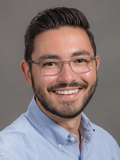 Antoine Lebeaut, MA
Antoine Lebeaut, MA
E-mail: alebeaut@uw.edu
Graduate Program: University of Houston
Clinical/Research Interests: I am currently a PhD candidate in clinical psychology at the University of Houston. My clinical focus is primarily on the treatment of posttraumatic stress disorder (PTSD) and commonly co-occurring disorders, including alcohol use disorder (AUD) and anxiety-related disorders. I’ve worked with a wide range of populations and routinely integrate evidence-based interventions in my clinical practice. My research interests involve identifying risk and maintenance factors for PTSD/AUD and developing integrated approaches to improve PTSD/AUD treatment outcomes.
 Merranda McLaughlin, MS
Merranda McLaughlin, MS
E-mail: merranda@uw.edu
Graduate Program:
Clinical/Research Interests: I am PhD candidate at the University of Miami. My clinical and research interests have centered around making psychotherapy more accessible to underserved groups, especially to individuals with serious mental illness. In particular, I have worked to adapt Culturally Informed Therapy (CIT) to Muslim clients and continues to examine how culture, tradition, and spiritual beliefs can be used effectively in evidence-based interventions.<
Autism and Developmental Disabilities
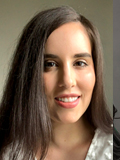 Emily Fox, MS
Emily Fox, MS
E-mail: eaf426@uw.edu
Graduate Program: Loyola University Maryland
Clinical/Research Interests: I am currently a doctoral candidate in clinical psychology at Loyola University Maryland. My research and clinical interests focus on promoting equitable access to high-quality, evidence-based diagnostic services to children with neurodevelopmental conditions and their families. My current research aims to improve efficiency and accuracy when triaging referrals for autism spectrum disorder (ASD) evaluation and also seeks to more clearly define factors that contribute to clinician-reported complexity in diagnosing ASD. As a clinician, I take a family-centered, culturally-informed, strengths-based approach. I am passionate about delivering kind, creative, flexible, and helpful care to families, and I particularly enjoy delivering services within an interdisciplinary team of providers.
 Daisy Hu, MS, DBA*
Daisy Hu, MS, DBA*
E-mail: daisyhu@uw.edu
Graduate Program: University of Missouri-Columbia, Department of Educational, School & Counseling Psychology
Clinical/Research Interests: My research and clinical interests focus on promoting the well-being and vocational development of autistic and other neurodivergent individuals, reducing inequities in accessing services and care among under-resourced communities, and fostering interdisciplinary and international collaboration in autism practice and research. My training in neurodevelopment disorders and vocational psychology has inspired me to understand and promote neurodiversity, with the goal of helping neurodivergent individuals thrive in the workforce. I am committed to creating and providing culturally competent care to neurodivergent individuals their families, especially those in under-served communities and developing countries. Outside of work, I like to snuggle with my cat (Mr. Burger), hunt food and recipes, and hike with my partner and friends.
Behavioral Medicine
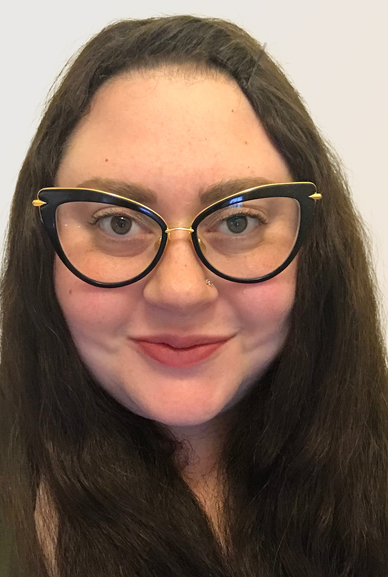 Tilda Cvrkel, MA, MS
Tilda Cvrkel, MA, MS
E-mail: cvrkel@uw.edu
Graduate Program:
Clinical/Research Interests: My research focuses on the intersection of trauma and stigma, examining the social impacts of traumatic injury or illness. Acquired disabilities or illness sequelae may be accompanied by increased experiences of oppression, discrimination, stigma, or internalized feelings of shame. I am interested in how these experiences impact the severity, distribution, and treatment of posttraumatic symptoms, especially for patients who hold multiply marginalized identities. My current research focuses on asylum applicants who have faced identity-based persecution and are survivors of torture. Clinically, I use evidence-based practices informed by liberation psychology. I aim to provide care that is effective, affirming, collaborative, and culturally humble. Before studying psychology, I worked as a philosopher and bioethicist, and this background shapes both my research and clinical work.
 Candice Golembo, MS
Candice Golembo, MS
E-mail: cgolem2@uw.edu
Graduate Program: Loyola University Maryland, Psychology
Clinical/Research Interests: My research interests involve the measurement of psychological treatment effectiveness and identifying factors contributing to psychological treatment engagement among medically complex populations. As a means of promoting health equity and maximizing accessibility, my current research focuses on exploring the effectiveness of an online interactive self-management program for individuals with limb loss. Clinically, I am guided by the biopsychosocial model and employ an integrative behavioral strengths-based perspective. I use evidence informed approaches from motivational interviewing and cognitive-behavioral therapy, enhanced by interpersonal, humanistic, and acceptance-based techniques. Outside of work, I enjoy hiking, bird watching, and trying new and exciting foods.”
 Sae-Jin Kim, MA
Sae-Jin Kim, MA
E-mail: skim238@uw.edu
Graduate Program: Georgia State University
Clinical/Research Interests: I am a doctoral candidate in the Clinical-General Psychology PhD program at Georgia State University. I work under the advisement of Dr. Lisa Armistead. My research focuses on promoting the health of underserved and underrepresented populations considering social processing variables, including stigma, cultural socialization, and social support.
 Kristen O’Loughlin, MA, MS
Kristen O’Loughlin, MA, MS
E-mail: krisolo@uw.edu
Graduate Program: Virginia Commonwealth University
Clinical/Research Interests: I am currently a PhD candidate at Virginia Commonwealth University. My clinical and research interests broadly focus on the intersection between mental health and chronic disease. Recently, my program of research has focused on better understanding psychosocial factors that are important to patients with multiple chronic conditions and which lead to meaningful improvements in both their disease management and overall sense of health. Clinically, I integrate evidence-based approaches including cognitive-behavioral therapy (CBT), acceptance and commitment therapy (ACT), motivational interviewing (MI), and mindfulness-based strategies to support individual adjustment in the context of complex medical needs. I strive to create an affirming space for patients where all aspects of their identity are incorporated into treatment. Outside of work, I love spending time with my family, hiking/running, exploring new restaurants, and traveling.
 Megan Weishaar, MS
Megan Weishaar, MS
E-mail: mweish@uw.edu
Graduate Program: Colorado State University
Clinical/Research Interests: My research interests include identifying individual, environmental, and systemic characteristics and traits that may be used to promote engagement in health promoting behaviors and mitigate harm associated with health risk behavior engagement, particularly among individuals experiencing physical injuries. I also have a strong interest in statistics and research methods. Clinically, I am interested in working on integrated healthcare teams to provide brief, evidence-based care to individuals experiencing chronic health concerns and injuries across the lifespan. I operate from a cognitive-behavioral and third-wave theoretical perspective in my clinical work, with an anti-oppression, humanistic, collaborative, and strengths-based focus. Personally, I enjoy spending time trying new restaurants and spending time outside with my partner, dog, and cat.
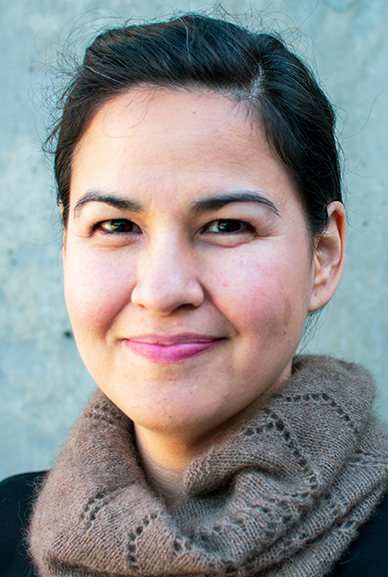 Rebecca Young, MS
Rebecca Young, MS
E-mail: aivik@uw.edu
Graduate Program: University of Alaska Anchorage
Clinical/Research Interests: As a researcher-in-relation, my research primarily engages Indigenous community members to portray the depth and metaphysical range of culture and relational harmony as pathways to healing to address past and contemporary harms associated with colonization. I am also interested in health equity research and access to rehabilitation medicine, particularly for those impacted by traumatic brain injury. I identify as a liberation psychologist in training. I provide clinical interventions that align with the worldviews and psychopolitical contexts of those I help and stand in solidarity with actions for underrecognized communities toward effective change and social justice.
General Child Psychology
 Jess Chong, MA
Jess Chong, MA
E-mail: lishenc@uw.edu
Graduate Program:
Clinical/Research Interests: My research interest focuses on how early life adversities and stress response systems influence mental and physical health outcomes and racial/ ethnic health disparities, with an overarching goal of incorporating stress biomarkers as parameters to improve outcomes. Clinically, I am interested in using evidence-based treatment flexibly to help youth and families, especially those who were exposed to trauma, in developing resiliency to navigate life obstacles. I also enjoy providing comprehensive assessments to youth presenting with complex medical, trauma, developmental, and mental health problems.
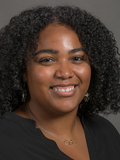 Mariah Corey, MS
Mariah Corey, MS
E-mail: mdcorey@uw.edu
Graduate Program:
Clinical/Research Interests: Mariah is broadly interested in using research to inform clinical practice to improve mental health outcomes for marginalized populations. Thus far, her researched has focused on understanding the effects of ethnic-racial discrimination on Black individuals’ mental health including creating a clinically relevant model to inform coping with discrimination when it occurs in real time. In the future, she aims to pursue program development and evaluation projects within healthcare systems to improve care for ethnic and racial minority populations, especially Black populations, experiencing race-related stress.
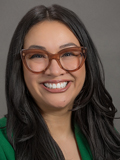 Ana Hernandez, ME, MS
Ana Hernandez, ME, MS
E-mail: anachern@uw.edu
Graduate Program:
Clinical/Research Interests: At the center of my research and clinical work is a passion for supporting individuals from historically underserved and marginalized populations. My research aims to move the field beyond a deficit framework in which holding marginalized identities is assumed to confer risk for poor outcomes. Therefore, my research program has centered on parental and child factors that shape the socio-emotional development of Latinx children, emphasizing sociocultural factors that relate to the full range of developmental outcomes. Clinically, I have sought training opportunities to provide evidence-based practices to culturally diverse and socioeconomically disadvantaged populations. I have predominately focused on incorporating sociocultural and system frameworks into cognitive-behavioral treatments.
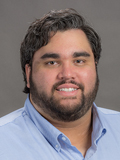 Carlos Yeguez, MS
Carlos Yeguez, MS
E-mail: Carlos.Yeguez@seattlechildrens.org
Graduate Program:
Clinical Interests: My program of research is primarily focused on refining and developing scalable and cost-effective interventions to reduce long-term risk for suicide and other deleterious developmental outcomes. To characterize youth distress, and to address what interventions work for whom, I have used multiple methods and tools from related disciplines including: qualitative interviewing to develop novel theories when little is known about an area of interest, quantitative and mixed-methods data analyses to identify risk factors and characterize intervention effects, cost analysis of service delivery models to address the scalability and cost-effectiveness of interventions, and behavioral tasks collected with neuroimaging data to characterize phenotypes and examine intervention mechanisms.
Rehabilitation Neuropsychology
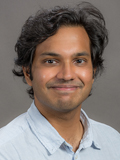 Deepan Guharajan, MS
Deepan Guharajan, MS
E-mail: dguharaj@uw.edu
Graduate Program: Yeshiva University/Ferkauf
Clinical/Research Interests: Deepan Guharajan (he/him) is a doctoral candidate in the Clinical Health Psychology Program with neuropsychology minor emphasis at Yeshiva University located in The Bronx, New York City. His research has primarily focused on the protective role certain personality facets may have in the aging process of older adults with and without Multiple Sclerosis, with a particular interest on the neuropsychological correlates that predict healthy vs. pathological aging. Clinical interests include the intersection of rehabilitation psychology and neuropsychology, as the interdisciplinary setting encourages close collaboration with other allied health professions and the opportunity to deliver neuropsychological care (that includes both assessment and treatment interventions) early on in an individual’s care. Outside of work, he enjoys being in nature, spending time with his rodent pets (guinea pigs and rats!), and playing video games.
Last Modified: February 2, 2024